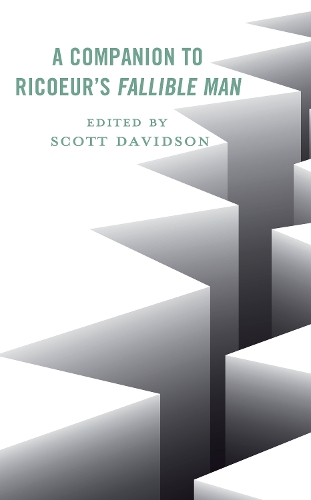
A Companion to Ricoeur's Fallible Man
(Hardback)
Publishing Details
A Companion to Ricoeur's Fallible Man
By (Author) Scott Davidson
Contributions by Jean-Luc Amalric
Contributions by Luz Ascrate Ascarate
Contributions by Scott Davidson
Contributions by Geoffrey Dierckxsens
Contributions by Daniel Frey
Contributions by Brian Gregor
Contributions by Annemie Halsema
Contributions by Timo Helenius
Contributions by Jrme Pore
Bloomsbury Publishing PLC
Lexington Books
10th October 2019
United States
Classifications
Professional and Scholarly
Non Fiction
Psychology
Reference works
Religion and beliefs
128
Physical Properties
Hardback
236
Width 161mm, Height 225mm, Spine 23mm
544g
Description
Fallible Man is the second book in Paul Ricoeurs early trilogy on the will and the most accessible of his early writings. While the descriptive approach of Freedom and Nature set aside all normative questions, Fallible Man removes those brackets to examine the bad will, asking what makes evil a possibility. Combining rigor and originality, Ricoeur locates the possibility of evil in a self that is fundamentally in conflict with itself. Edited by Scott Davidson, A Companion to Ricoeur's Fallible Man clarifies and contextualizes the central arguments developed in Ricoeurs philosophy of the will, providing insight into his formative influences and themes. The collection gathers an international group of scholars who specialize in Ricoeurs thought to shed light on an impressive range of themes from Fallible Man that resonate with contemporary debates in philosophy and religion.
Reviews
This volume, under the direction of Professor Scott Davidson, offers a rich and diverse panorama of contributions devoted to Fallible Man. The reconstruction of Ricoeurs approach from the four major Kantian questions is very enlightening and gives essential insights to better understand this work. -- Johann Michel, L'cole des Hautes tudes en Sciences Sociales
Strictly speaking, it was only with Fallible Man in 1960 that Paul Ricoeur entered into philosophy. We have been waiting for this new companion to Ricoeurs Fallible Man, which helps to measure both the influence and scope of this key text. Bypassing the often and much developed Paul Ricoeur of hermeneutics, we come to discover or rediscover today the early Ricoeur of "Finitude and Guilt"and especially of fallibility. This companionship with Ricoeur convinces us that a finished work can never be understood independently of its origins. This is what this book has the strength and audacity to show. -- Emmanuel Falque, Professor of Philosophy, Catholic Institute of Paris
In this volume, editor Scott Davidson has very ably gathered a talented, international pool of Ricoeur scholars both established and younger to help illuminate the riches of Fallible Man by means of the very Ricoeurian motif of mediation: mediation of this text in relation both with other thinkers (Husserl, Jaspers, Marcel, Nabert) and with other topics, both within and without Ricoeurs larger corpus (embodiment, enactivism, evil, fragility, imagination, narrative identity, recognition). -- George Taylor, University of Pittsburgh
This collection of original essays by leading Ricoeur scholars illuminates Paul Ricoeurs Fallible Man, the important but not well known link between his first work, Freedom and Nature, and his later books. Scott Davidson, an internationally known Ricoeur scholar, contributes an excellent introduction to this collection of original essays and a chapter showing Jean Naberts influence on Ricoeur. This book is an important contribution to Ricoeur studies. -- Charles E. Reagan, author of Paul Ricoeur: His Life and His Work
Author Bio
Scott Davidsonis professor of philosophy at West Virginia University.
